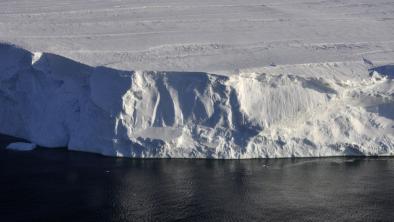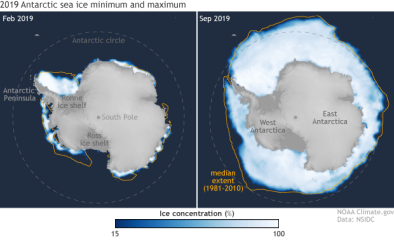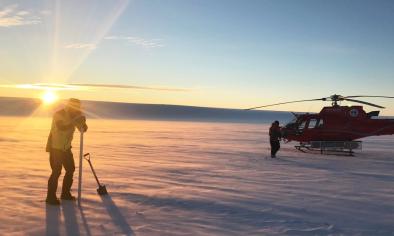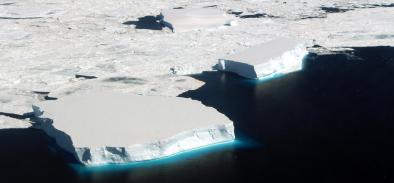Science Source
Mass Loss of Totten and Moscow University Glaciers, East Antarctica, Using Regionally Optimized GRACE Mascons
[The Totten and Moscow University] glaciers are vulnerable to the intrusion of warm ocean water and hold considerable potential for sea level rise. This work highlights that East Antarctic glaciers are as important to our future as those in the continent’s western regions.
- Eric Rignot, Donald Bren Professor and chair of Earth system science at UCI and co-author of the new study
- States that the Totten and Moscow University glaciers, in the marine‐based sector of East Antarctica, contain enough ice to raise sea level by 5 meters
- States that it is challenging to obtain precise measurements of their mass balance owing to the large area of the basins and the small mass balance signal compared to West Antarctic glaciers
- Employs a locally optimized processing of Gravity Recovery and Climate Experiment (GRACE) harmonics to evaluate their mass balance at the sub‐basin scale
- Compares the results with mass budget method (MBM) estimates using regional atmospheric climate model version 2.3 (RACMO2.3) or Modèle Atmosphérique Régional version 3.6.4 (MAR3.6.4)
- Finds that the sub‐basin mass loss estimate for April 2002 to November 2015 is 14.8 ± 4.3 Gt/yr, which is weakly affected by glacial isostatic adjustment uncertainties (±1.4 Gt/yr)
- This result agrees with MBM/RACMO2.3 (15.8 ± 2.0 Gt/yr), whereas MBM/MAR3.6.4 underestimates the loss (6.6 ± 1.6 Gt/yr)
- Finds that for the entire drainage, the mass loss for April 2002 to August 2016 is 18.5 ± 6.6 Gt/yr, or 15 ± 4% of its ice flux
- These results provide unequivocal evidence for mass loss in this East Antarctic sector
Related Content
Headline

Jan 29, 2020 | BBC News
Journey to the 'doomsday glacier'
Headline

Nov 22, 2019 | NOAA Climate.gov
Understanding climate: Antarctic sea ice extent
Headline

Mar 26, 2019 | The Guardian
Australian researchers find huge lakes beneath largest east Antarctic glacier
Headline

Jun 15, 2018 | The New York Times
Antarctica Is Melting Three Times as Fast as a Decade Ago


